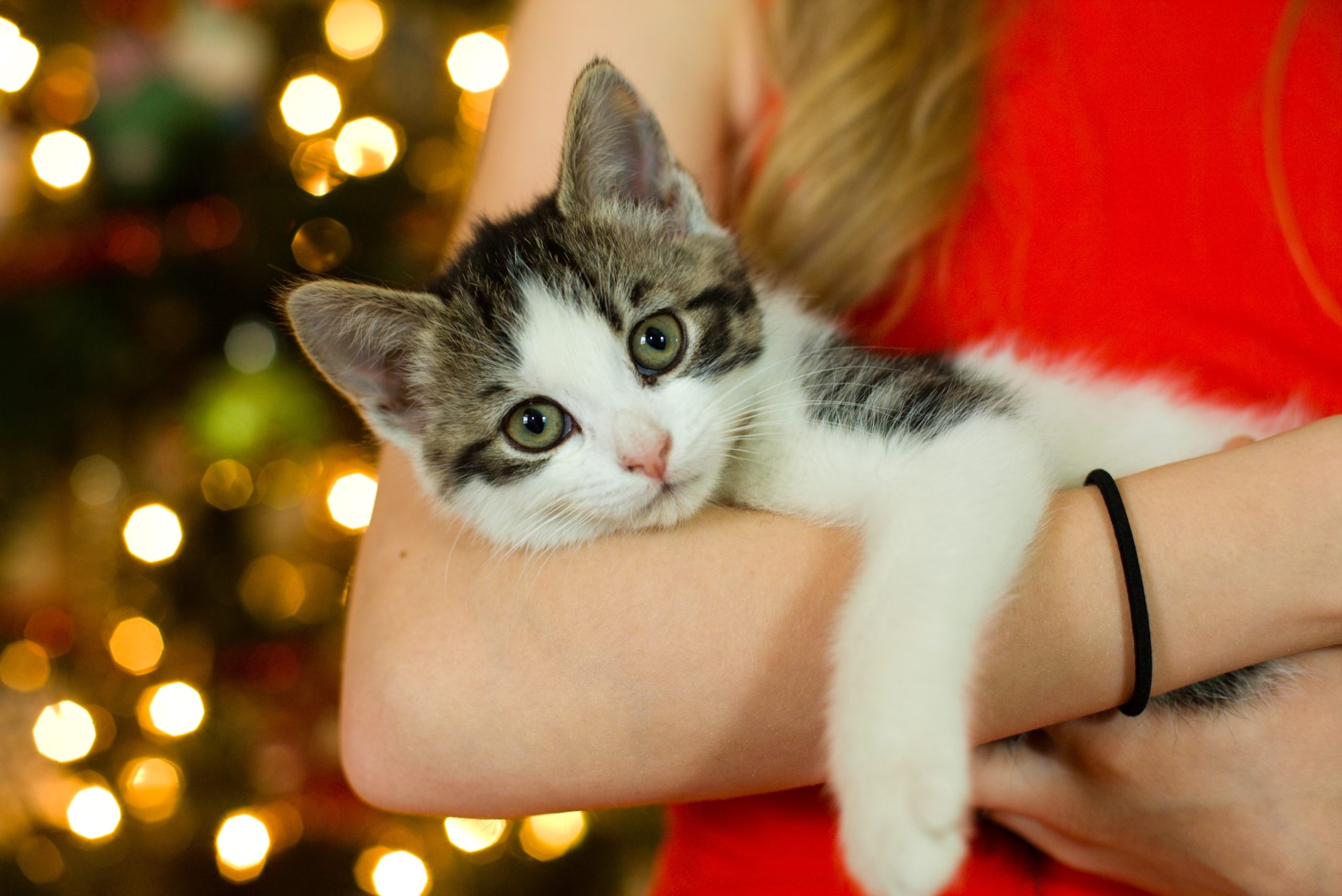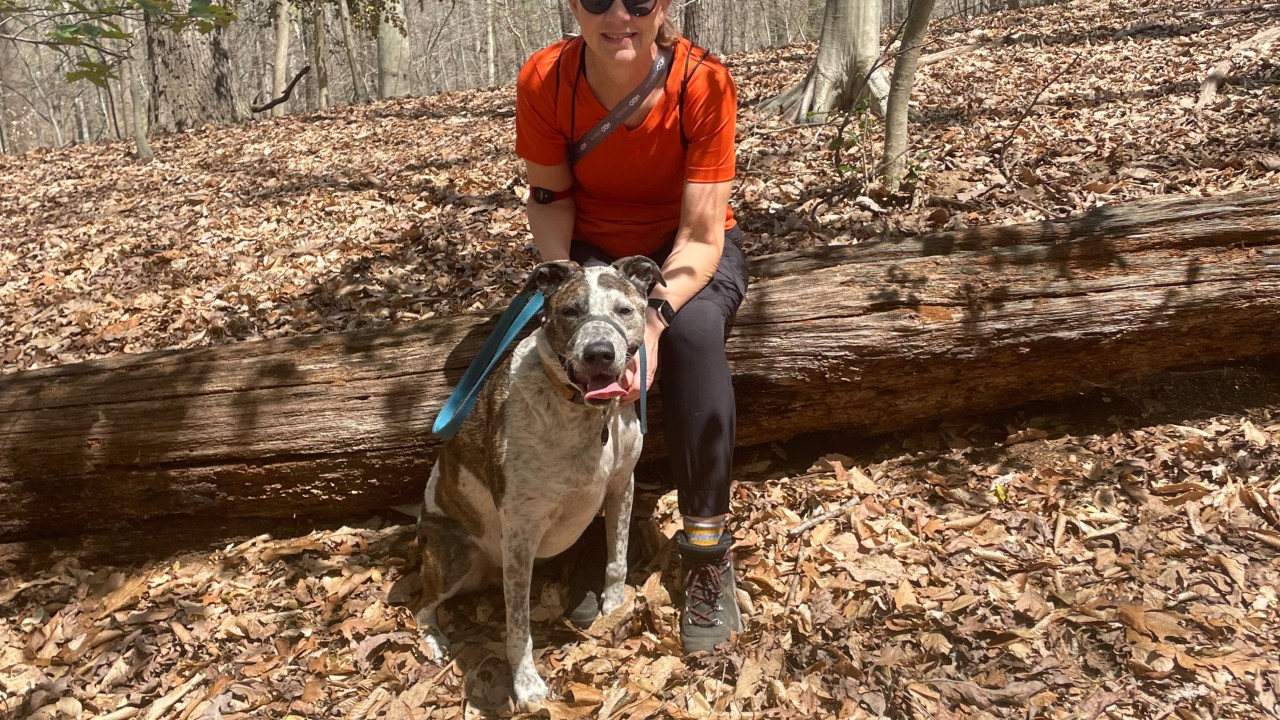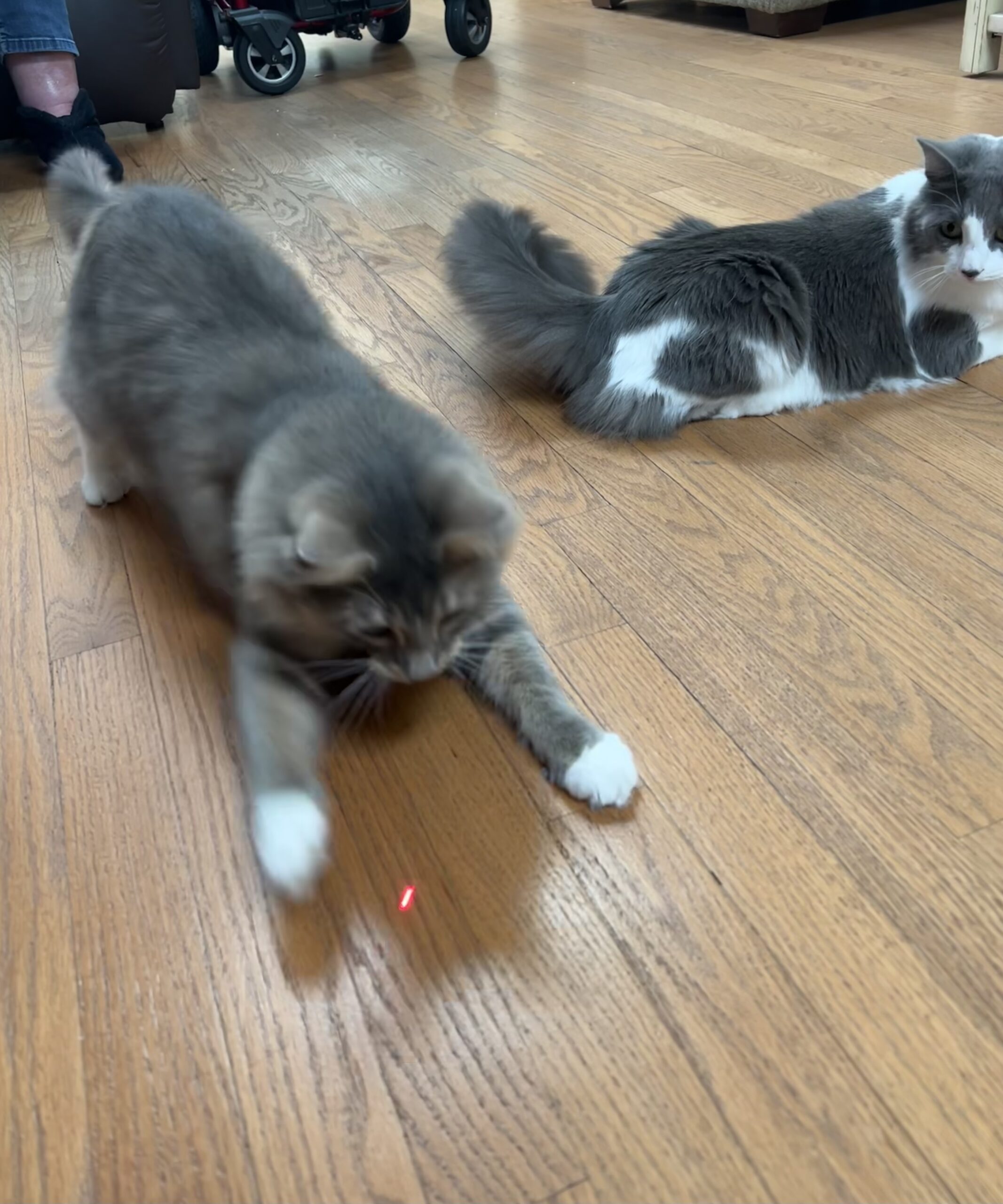5 Holiday Pet Safety Tips
The holiday season is a special time for families, and pet lovers may find special ways to include their dog or cat in holiday festivities. However, this busy season can be overwhelming for pets and many common holiday foods and decorations can pose potentially life-threatening risks. It is important to keep the holidays safe, healthy, and fun for both pets and pet lovers alike.
Plan for Emergencies
Always keep your veterinarian’s contact information in an easy-to-find location in case of an emergency, and know what hours the office is open. If needed, determine where the nearest emergency veterinary clinic is located, and make sure you know how to get there should a pet need transported. Make note of resources that may help in case of a poison-related emergency, such as the ASPCA Poison Control (1-888-426-4435).
Don’t Feed Pets Human Foods
Hosting a holiday spread this year? Many human foods can be dangerous for pets, so always remember to keep the buffet and full plates out of reach. Only feed dogs or cats complete and balanced pet food, and feed treats in moderation.
The following human foods can be dangerous for pets to consume:
- Sweets and baked goods: Holiday baked goods are often too rich for pets and may also contain xylitol, an artificial sweetener linked to liver failure and death in dogs.
- Chocolate: It may be a common ingredient for holiday baking, but chocolate is toxic to cats and dogs. The toxicity can vary depending on the type of chocolate, the size of the pet, and the amount they ingested. It’s best to keep all chocolate away from pets.
- Table scraps: Foodstuffs that are high in calories and fat that can lead to obesity and pancreatitis, a potentially life-threatening inflammation of the pancreas caused by high-fat diets. So even in considering feeding small amounts, think twice before slipping your dog the extra turkey skin and gravy underneath the dining room table.
- Caffeinated beverages and alcohol: Pets should stick to water during the holiday season. Caffeinated beverages like soda and alcoholic drinks such as beer, wine and liquor are all toxic to pets.
- Common holiday ingredients: Many holiday recipes include onions, garlic, grapes, raisins and macadamia nuts – all of which can be harmful to pets if ingested.
If a pet eats any of these items, call the veterinarian or emergency veterinary clinic immediately. Signs of pet distress include sudden changes in behavior, vomiting, or diarrhea.
Deck the Halls with Pet-Friendly Decor
Remember that some holiday décor items can be extremely hazardous to pets, including:
- Christmas trees: When choosing between a pine or an artificial tree, keep in mind that pine needles are mildly toxic to pets and can also cause irritation to their gastrointestinal tract.
- Ornaments and tree décor: Ornaments, tinsel, gingerbread men and popcorn garland can lead to major health issues if ingested by a pet. Consuming these items can cause intestinal blockages which can sometimes require surgery. When decorating, keep these items out of reach and use more pet-friendly decorations whenever possible.
- Electric lights: If pets chew on the cords of electric lights, it can cause burns, so always keep lights out of their reach. Always unplug all lights and decorations when you leave the house.
- Candles: Never leave a burning candle unattended, as curious pets could accidentally start a fire.
- Festive florals and plants: Common holiday plants such as Poinsettias, amaryllis, mistletoe, balsam, pine, cedar and holly are considered poisonous to pets.
Give Pets a Break from Holiday Parties and Visitors
The commotion of hosting holiday gatherings and visitors can make pets anxious, even if they aren’t usually shy.
Here are some ways to reduce stress on dogs and cats during the holidays:
- All pets should have a safe, quiet place to retreat from the festivities. This spot should be easily accessible and in a location away from the commotion.
- Consider the needs of nervous pets. Pets who are often tentative or scared around visitors should be kept in another room or a crate with a favorite toy or blanket.
- Monitor all exits. Keep a close eye on pets as guests are coming in and out. Make sure pet ID tags and microchips are updated with current info in case pets accidentally slip out the door.
Consider Holiday Travel Plans
Keep cats and dogs in mind when planning travel over the busy holiday season, whether they are joining the fun or staying at home.
- Pack plenty of food and water for pets. Ensure pet food is properly stored while traveling, keeping in mind delays are often possible. Kibble and dry treats should be properly sealed and stored in a cool, dry place. Canned pet food should be sealed and refrigerated after opening if the entire container is not served to the pet at one time.
- Keep pets safe on the road. Pets should always be safely restrained in vehicles with a secure harness or carrier. Also, never leave pets alone in the car, regardless of the weather.
- Make a detailed list of instructions for pet sitters or when boarding pets. If leaving pets behind, make sure pet sitters know important information about your pet, including feeding instructions. Talk to your veterinarian to learn how to protect cats and dogs from illnesses if they are being boarded, and to make sure pets are up to date on vaccinations.
Click here to get more tips to ensure a safe and happy holiday.
Sources:
https://www.petfoodinstitute.org/keep-careful-eye-table-scraps/
https://www.petfoodinstitute.org/keep-pets-safe-healthy-holidays/



